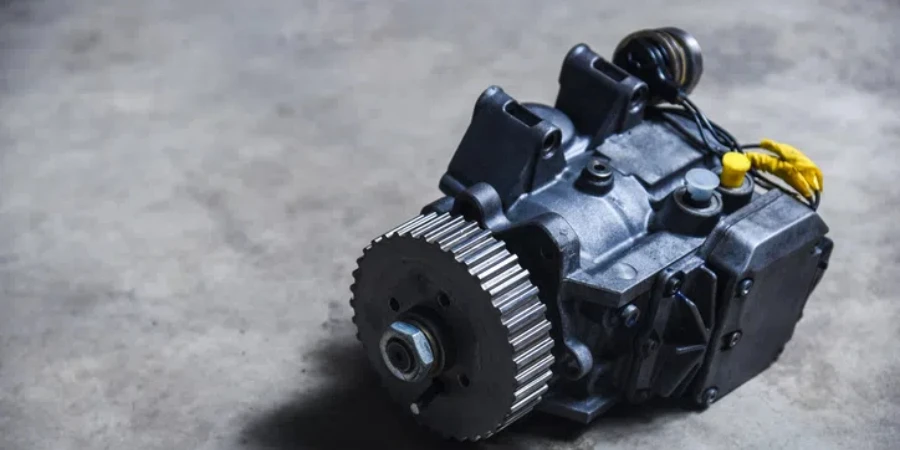The fuel pump, often termed the heart of a vehicle’s fuel system, plays a pivotal role in maintaining the engine’s lifeline. It’s a component that many might not think about until issues arise. This article aims to shed light on the fuel pump’s critical aspects, from its function and types to troubleshooting common problems and maintenance tips. Understanding the nuances of your vehicle’s fuel pump can save you time and money, ensuring a smoother ride.
Table of Contents:
– What is a fuel pump and how does it work?
– Types of fuel pumps and their applications
– Common fuel pump issues and troubleshooting
– Maintenance tips for a longer-lasting fuel pump
– The future of fuel pumps in modern vehicles
What is a fuel pump and how does it work?

The fuel pump’s primary function is to deliver fuel from the tank to the engine at the right pressure and volume, ensuring optimal combustion. This process begins when you turn the ignition key, activating the pump. In most modern vehicles, the fuel pump is electric and located inside the fuel tank. It consists of an impeller or rotor that pulls fuel out of the tank through a series of lines and filters, pushing it towards the engine.
Understanding the mechanics behind the fuel pump illuminates its importance. A malfunctioning pump can lead to a decrease in fuel efficiency, power, and, in some cases, a complete engine shutdown. Recognizing the signs of a failing fuel pump, such as sputtering at high speeds or a loss of power under stress, can prevent costly repairs and dangerous situations on the road.
Types of fuel pumps and their applications

Fuel pumps can be classified into two main types: mechanical and electric. Mechanical fuel pumps, found in older vehicles, utilize the engine’s motion to pump fuel. These pumps are mounted on the engine or on the frame rail between the tank and the engine. Electric fuel pumps, on the other hand, are used in most modern vehicles. They offer advantages in terms of efficiency and safety, as they can maintain a constant fuel pressure for the engine’s needs.
Each type of fuel pump has its specific applications and benefits. For instance, high-performance vehicles might use high-flow electric pumps to meet their engine’s demands. Understanding the differences can aid in selecting the right fuel pump for your vehicle, especially if you are considering an upgrade or replacement.
Common fuel pump issues and troubleshooting

Fuel pump failures can manifest in various ways, from the inability to start the vehicle to poor performance and fuel efficiency. Recognizing these symptoms early can be crucial. Common issues include a whining noise from the fuel tank, engine misfires, overheating, and unexpected stalling.
Troubleshooting fuel pump problems often starts with checking the fuel pressure with a gauge. This can indicate whether the pump is delivering the correct amount of fuel to the engine. Additionally, inspecting the fuel filter for blockages and ensuring the pump’s electrical connections are secure can resolve some issues without the need for a full replacement.
Maintenance tips for a longer-lasting fuel pump

Regular maintenance can significantly extend the life of your fuel pump. This includes keeping the fuel tank at least a quarter full at all times, as the fuel acts as a coolant for the pump, preventing it from overheating. Changing the fuel filter as recommended by your vehicle’s manufacturer can also prevent debris from clogging the pump.
Another tip is to listen to your vehicle. Any changes in the engine’s performance, such as difficulty starting or a noticeable decrease in fuel efficiency, should prompt a fuel system check. Early detection of potential problems can prevent more significant issues down the line.
The future of fuel pumps in modern vehicles

As vehicles evolve, so too does the technology surrounding fuel pumps. Innovations in fuel pump design aim to increase efficiency, reduce emissions, and accommodate alternative fuels. For example, variable speed pumps, which adjust the fuel flow based on the engine’s current needs, are becoming more common. This not only improves fuel economy but also reduces the strain on the pump, potentially extending its lifespan.
Looking ahead, the rise of electric and hydrogen fuel cell vehicles will redefine the concept of the “fuel pump.” Electric vehicles (EVs), for instance, do not require a traditional fuel pump, highlighting the automotive industry’s shift towards more sustainable and efficient transportation methods.
Conclusion:
The fuel pump is a critical component of your vehicle’s fuel system, ensuring that the engine receives the right amount of fuel at the right pressure. Understanding its function, types, common issues, and maintenance can help keep your vehicle running smoothly and efficiently. As automotive technology advances, staying informed about the latest developments in fuel pump technology will become increasingly important. By paying attention to your vehicle’s needs and adopting proactive maintenance practices, you can ensure the longevity and reliability of your fuel pump, and by extension, your vehicle.




